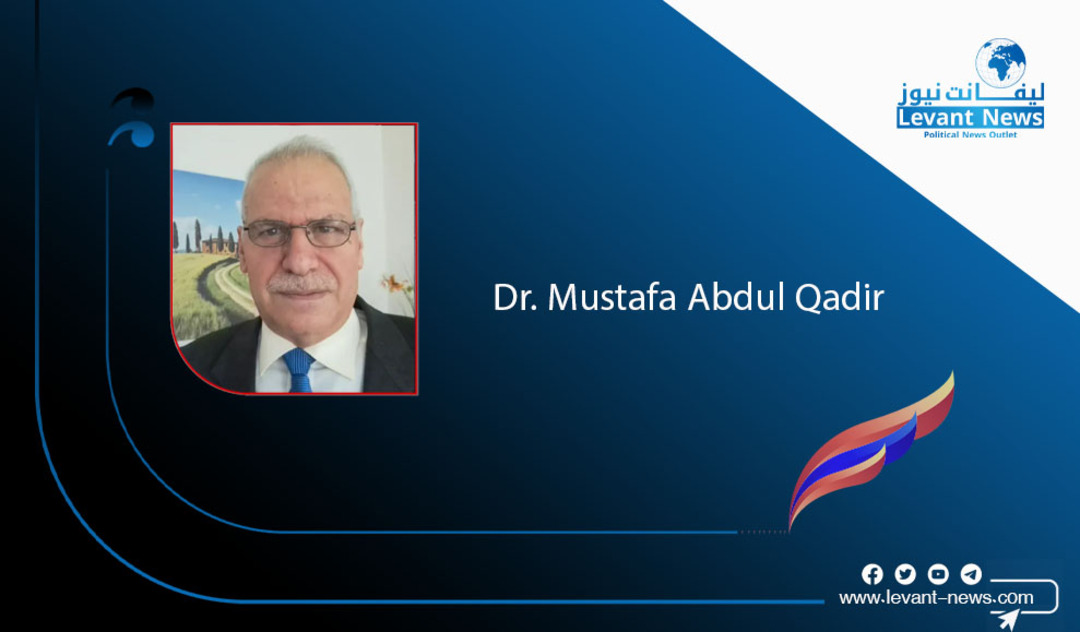-
The Iranian Regime Falls at the Baghdad Summit, and Political Gains for the Syrian Revolution Government

Regardless of the ongoing political struggles that manipulate the Arab region, and far from the games of “musical chairs” which lack stability and are unsteady in inclination, we observe that the recent Arab summit held in Baghdad failed to reach the level of any previous Arab summit, old or new. Thus, Baghdad's summit was nothing more than a gathering where Arab foreign ministers merely exchanged commemorative photos, nothing more.
The failure of Iraq to build bridges of diplomacy with its Arab neighbors since 2003—after the United States handed Iran the reins—has led to Iran’s dominance over its political, economic, and intellectual affairs, in accordance with agendas that serve its ambitions and fulfill its religious, geographical, and regional designs. This intervention has brought disaster to Iraq, suppressing its scientific renaissance that once shone brightly and grew, only for it to be extinguished and die at the hands of the Qatfani rulers. It is inconceivable that someone harboring evil intentions and waiting for an opportunity to strike and devour you could suddenly turn into a close friend standing against those who threaten or threaten you!
It is no longer hidden from anyone what the oppressive Iranian regime has done—its incitement of some of its followers and disciples in Iraq against the Syrian revolution, its leadership, and its unprecedented achievements. Accordingly, the Syrian leadership is fully aware that the mullah regime will strive to sabotage the Baghdad summit. Therefore, it chose to participate in the Riyadh Summit instead of the Baghdad one, deliberately working to undermine it by sending Quds Force commander Ismail Ghaani a day before the summit, and officially announcing this by Iraqi individuals affiliated with the Qatfani regime. This led to Arab countries boycotting this feeble summit, exposing Baghdad's (imprisoned) isolation from the Iranian regime and its deepening distance from its Arab environment amid the domination and continual blackmail by Iran’s mullahs under slogans and names that neither enrich nor benefit.
The Iranian regime cannot hide the victory of the blessed Syrian revolution, nor can it deny its new government’s recognition—since the international community has explicitly recognized it, engaged with it at the highest diplomatic levels, and even extended aid, offering all necessary support for development, reconstruction, and cooperation in all fields. This aims to shape a new Syrian future with promising prospects, enabling the country to swiftly overcome past calamities.
After the series of defeats and the humiliation that Iran’s ruling elites have endured following the victory of the blessed Syrian revolution, they now view any progress Syria makes in its victorious journey with envy and displeasure. They subconsciously realize that the people's victory in Syria must negatively impact Iran’s rulers. Meanwhile, the Iranian uprising is boiling and escalating dramatically, with no signs of peace, which alarms the regime of the Supreme Leader and causes them to be anxious and restless. Sooner or later, Iranian resistance and its people will triumph, and the mullah regime will go to hell. The plans and policies of the appeasement and reconciliation camp in the West will collapse, and the world will admit that victory is driven by the will of peoples—the best option being to stand with the Iranian people rather than supporting the corrupt, despotic mullah regime and turning a blind eye to its crimes in Iran and the region.
All internal indicators in Iran indicate that the Iranian people are determined to continue their opposition to the mullahs, regardless of the escalating levels of killing and repression. Regionally, things are moving contrary to the wishes of Iran’s mullahs; weakness in presence and influence, or being expelled from dominance, are now the signs forecasting dire prospects for Iran's rulers. Internationally, restrictions are tightening on all avenues for manipulation and playing for time—time upon which the Iranian regime has staked heavily—while threats from the U.S. and Israel are intensifying day by day. The primary plan to strike Iranian nuclear sites is ready for execution upon receiving the signal, with alternative, detailed plans prepared to cover all emerging developments. When the moment comes, the “Last Supper” may have already been advanced, and they are now waiting behind the door for permission to enter.
Dr. Mustafa Abdelkader
You May Also Like
Popular Posts
Caricature
opinion
Report
ads
Newsletter
Subscribe to our mailing list to get the new updates!




















